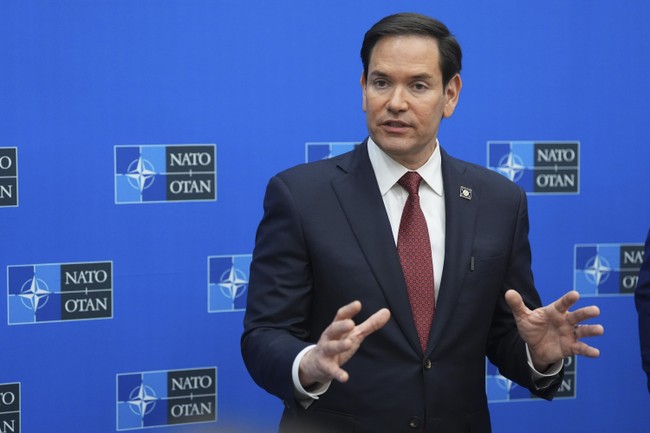
A lot of people were shocked when J.D. Vance denounced the Europe-wide abandonment of and active hostility to free speech at the Munich Security Conference back in February.
To say that Vance was unusually blunt is a gross understatement. It’s more accurate to say that he dropped a bunker-busting bomb on the European Union.
🚨🔥VP Vance calls out the hypocrisy of nations crying “misinformation harms democracy” while they’re busy canceling elections:
“If your democracy can be destroyed with a few hundred thousand dollars of advertising from a foreign country.. it wasn’t strong to begin with.” pic.twitter.com/qQUH8wLzlW
— Benny Johnson (@bennyjohnson) February 14, 2025
Diplomats were outraged, as was every member of the transnational elite. You just don’t talk to allies like that, right? You use diplo-speak, a foreign language in which real meanings are obscured behind anodyne phrases that are incomprehensible to ordinary people.
You speak bluntly to adversaries and mask disagreements with friends.
Perhaps that is so, but also, perhaps, the Trump administration is signaling that it doesn’t see countries and institutions that use their power to violate the rights of Americans as friends.
Marco Rubio, our chief diplomat and far less of a bomb-thrower than Trump or Vance usually, has signaled that the administration is more than serious about its campaign to liberate America and all the citizens of the Western alliance.
Foreigners who work to undermine the rights of Americans should not enjoy the privilege of traveling to our country. Whether in Latin America, Europe, or elsewhere, the days of passive treatment for those who work to undermine the rights of Americans are over.
— Secretary Marco Rubio (@SecRubio) May 28, 2025
He has announced what amounts to sanctions on foreign individuals or entities who have been involved in efforts to silence Americans through regulations and censorship organizations.
Including “foreign officials” of our allies.
Please read that again: we are applying similar sanctions to European government officials who have tried to censor Americans–quite a long list, which includes some of the most powerful government officials in the world–as are applied to adversaries and enemies of the United States.
I have often said that efforts to deprive Americans of their First Amendment rights amount to a casus belli–no right is more fundamental to our society and system of government than the right to free speech, and when foreign governments work to suppress that right it is an attack on all of us.
Apparently, Trump and company see it that way, too.
As I wrote yesterday, what amounts to a Trump doctrine was posted on the State Department Substack outlining America’s view of what the trans-Atlantic alliance should mean:
Our transatlantic partnership is underpinned by a rich Western tradition of natural law, virtue ethics, and national sovereignty. This tradition flows from Athens and Rome, through medieval Christianity, to English common law, and ultimately into America’s founding documents. The Declaration’s revolutionary assertion that men “are endowed by their Creator with certain unalienable rights” echoes the thought of Aristotle, Thomas Aquinas, and other European heavyweights who recognized that all men possess natural rights that no government can arbitrate or deny. America remains indebted to Europe for this intellectual and cultural legacy.
This connection between Europe and the United States is also the reason we speak honestly when we disagree or have concerns—and is why the Trump Administration is sounding the alarm in Europe. When Vice President Vance addressed this year’s Munich Security Conference, he made the reason clear, stating: “What I worry about is the threat from within, the retreat of Europe from some of its most fundamental values—values shared with the United States of America.”
…Americans are familiar with these tactics. Indeed, a similar strategy of censorship, demonization, and bureaucratic weaponization was utilized against President Trump and his supporters. What this reveals is that the global liberal project is not enabling the flourishing of democracy. Rather, it is trampling democracy, and Western heritage along with it, in the name of a decadent governing class afraid of its own people.
Our concerns are not partisan but principled. The suppression of speech, facilitation of mass migration, targeting of religious expression, and undermining of electoral choice threatens the very foundation of the transatlantic partnership. A Europe that replaces its spiritual and cultural roots, that treats traditional values as dangerous relics, and that centralizes power in unaccountable institutions is a Europe less capable of standing firm against external threats and internal decay. To this end, achieving peace in Europe and around the world requires not a rejection of our shared cultural heritage, but a renewal of it.
The message? America will not ally with countries hostile to the freedom of Americans, and will not have special relationships with Western countries if they are hostile to Western values. For decades, we have defended Europe because it shared our values; in the future, our relationship with Europe will be determined by whether Europe continues to do so.
Rubio’s move to sanction Europeans (and others, including Brazil’s censors) makes clear that action will follow the talk. The United States doesn’t just desire a loosening of speech and political restrictions, but a shift in European behavior.
If our allies act like tyrants, we will treat them as such.












